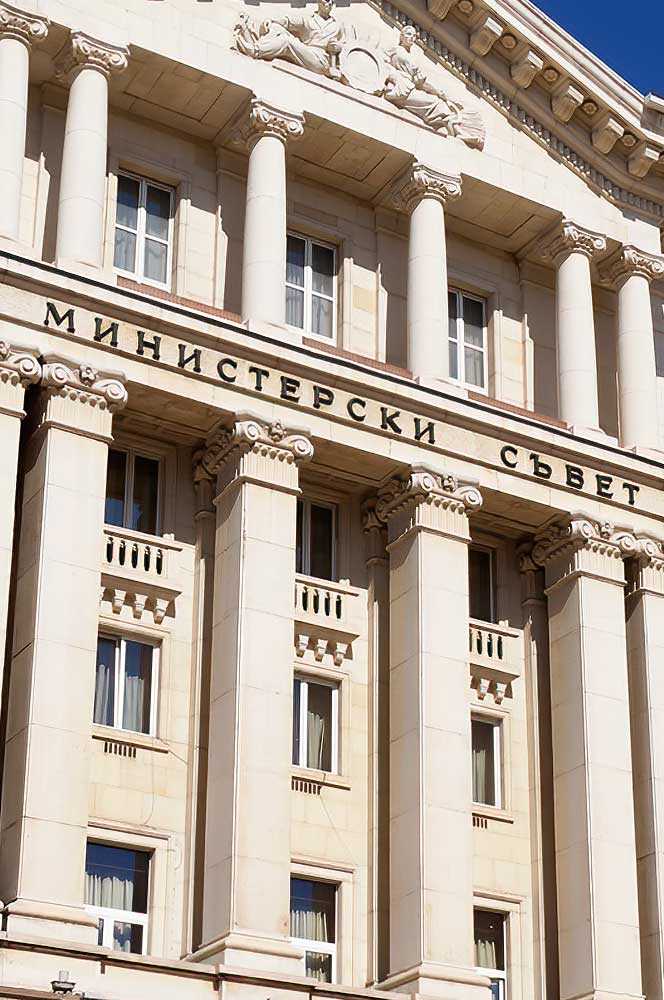The Prime Minister of Bulgaria is a key figure in the country’s political scene. The Prime Minister leads the government and manages the executive branch’s operations. This role, also known as the premier, is crucial in shaping Bulgaria’s policies and representing the nation internationally. This article explores the duties of the Prime Minister, recent leadership changes, how the President appoints the Prime Minister and the organization of Bulgaria’s government. Stay informed on Bulgaria’s political landscape with our guide.
Who is the Current Prime Minister of Bulgaria?
As of April 9, 2024, Dimitar Glavchev is the Prime Minister of Bulgaria. He took office on June 6, 2023, after a period of political negotiations and changes.
Recent Changes in Bulgarian Leadership
In recent years, Bulgaria has seen a dynamic political environment with frequent leadership changes. Before Dimitar Glavchev, Bulgaria experienced several interim governments due to political deadlock:
- Nikolai Denkov, 2023-2024
- Galab Donev, 2022-2023
This period saw frequent elections and interim cabinets, leading to a need for more decisive leadership. Dimitar Glavchev’s appointment as Prime Minister shows a consensus among major political parties. His leadership aims to bring more stable governance and address economic reforms, judicial independence, and anti-corruption issues.
The Role of the Prime Minister in Bulgaria’s Government
The Prime Minister of Bulgaria, also known as the premier, heads the Bulgarian government. The Prime Minister oversees the functioning of the executive branch and leads the Council of Ministers, the principal executive body. This council implements national policies, proposes legislation, and manages daily government affairs.
Key Responsibilities of the Bulgarian Prime Minister
- Government Policy and Administration: The Prime Minister ensures the implementation of government policies across all sectors. This includes managing daily operations, aligning policies with strategic goals, and addressing emerging challenges.
- Forming the Cabinet: The Prime Minister forms the Council of Ministers, or the Cabinet, by appointing ministers to lead various government departments. Each minister leads a specific ministry and implements policies within their expertise.
- Legislative Initiatives: The Prime Minister shapes Bulgaria’s legislative agenda by proposing new laws and budget plans to the National Assembly. This process involves collaborating with ministers to ensure legislative proposals align with government priorities and gain sufficient parliamentary support.
Appointment of the Prime Minister: The Role of the President of Bulgaria
The President of Bulgaria and the National Assembly (Parliament) are involved in appointing the Prime Minister. The current president, Rumen Radev, has nominated a candidate for prime minister. This nomination follows consultations with parliamentary groups to identify a candidate likely to secure a parliamentary majority.
The Appointment Process
- Nomination by the President: The President nominates a candidate for Prime Minister after consulting with political parties in the National Assembly.
- Approval by Parliament: The nominee must present their proposed government and policies to the National Assembly. A vote of confidence is held; if the candidate receives a majority, they are appointed Prime Minister.
- Formation of the Government: Once Parliament approves, the Prime Minister forms the Council of Ministers and starts governing according to the approved program.
The Structure of the Bulgarian Government: Organization Type and Key Bodies
The Prime Minister of Bulgaria leads the government and the executive branch through the Council of Ministers. As of April 9, 2024, the Prime Minister is Dimitar Glavchev. The Prime Minister’s duties include overseeing government operations, forming the Cabinet, and driving legislative initiatives.
The Council of Ministers: The Main Executive Body
The Council of Ministers is Bulgaria’s main executive body. It is responsible for implementing national policies and managing public administration. The council comprises the Prime Minister, Deputy Prime Ministers, and ministers who lead specific ministries. It executes the government’s strategic vision, develops policies, and ensures effective public service delivery.
Key Ministries Under the Council of Ministers
- Ministry of Finance: This department manages fiscal policies, the national budget, taxation, and public expenditures, ensuring economic stability.
- Ministry of Foreign Affairs: Oversees diplomatic relations, foreign policy, and international cooperation and protects Bulgarian citizens abroad.
- Ministry of Interior: Maintains public order, internal security, and border control, overseeing police and emergency services.
- Ministry of Defense: Responsible for defense policy, military organization, and international peacekeeping.
- Ministry of Health: Focuses on public health policy, healthcare services, and managing health crises.
- Ministry of Education and Science: Oversees the education system, promotes research, and ensures education quality.
- Ministry of Justice: This agency manages the legal framework, court administration, and legal reforms, upholding the rule of law.
- Ministry of Agriculture, Food, and Forestry: This department handles agricultural policy, food safety, and natural resource management.
- Ministry of Transport and Communications: Manages transportation infrastructure and communication networks.
- Ministry of Energy: Oversees energy policy, renewable energy development, and energy market regulation.
- Ministry of Labor and Social Policy: Focuses on employment, social welfare, and labor relations.
- Ministry of Environment and Water: Manages environmental protection, water management, and sustainable development practices.
The Role of the Council of Ministers in Governance
The Council of Ministers, led by the Prime Minister, meets regularly to discuss and decide on national policies and legislative proposals. Each minister is accountable for their ministry’s performance and must collaborate to achieve the government’s broader objectives. The council’s effectiveness relies on its members’ unity and ability to implement policies that benefit the public.
Stay Informed About Bulgaria’s Political Landscape
Understanding the Prime Minister’s role and the Bulgarian government’s organization provides insight into the country’s political dynamics. With Dimitar Glavchev as the current Prime Minister, appointed by President Rumen Radev and approved by the Bulgarian Parliament, Bulgaria aims for political stability and reform. For more updates on Bulgaria’s government, political news, and insights into the Prime Minister and President’s roles, stay tuned to our website and keep informed about this dynamic Eastern European nation.



